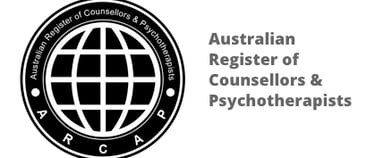Understanding Mental Health & Wellbeing: Your Guide to Counselling
Discover what happens in a first counselling session and how it can help ease anxiety about starting therapy. Explore how therapy supports anxiety and stress relief through practical tools and emotional support. Learn how trauma-informed counselling creates a safe, empowering space for healing and recovery. Break down stress responses and learn how they impact behaviour, emotions, and mental health. Feeling stuck, anxious, or overwhelmed? Discover common signs that therapy might be helpful.
COUNSELLING


What to Expect in Your First Counselling Session
Attending a first counselling session can elicit a mix of emotions, ranging from excitement to apprehension. It is important to understand the general structure and flow of the initial meeting, which can help ease any anxiety you may feel. Typically, the session will begin with an introduction where the counselor outlines the purpose of counselling, establishes confidentiality, and explains the process. This foundational step is critical as it aims to create a safe and supportive environment for open discussion.
Prior to your counselling session, it is advisable to prepare yourself by reflecting on the issues or feelings that prompted you to seek help. Being aware of your goals for therapy can facilitate meaningful dialogue and ensure that your needs are addressed. It is common to feel uncertain about how to articulate your thoughts and feelings; however, a skilled counselor is trained to navigate this uncertainty and will guide you through the conversation.
During the session, the counselor will ask questions to understand your background, current circumstances, and specific challenges you face. These inquiries are not meant to probe deeply into your private life but rather to provide context and help formulate a tailored approach to your mental health and wellbeing. You should feel encouraged to express any concerns or discomfort regarding the process, as establishing trust is of utmost importance in this therapeutic relationship.
As the session progresses, you may also wish to discuss your expectations of therapy and clarify any misconceptions about the process. Remember, counselling is a collaborative journey aimed at enhancing your mental health, and your thoughts and feelings are valuable components of this partnership. Your first counselling session is an essential step towards achieving personal growth and emotional healing.
How Counselling Can Help with Anxiety and Stress
Counselling serves as a critical support framework for individuals grappling with anxiety and stress, offering various methods that promote mental wellbeing. One of the commonly utilized approaches in counselling is cognitive-behavioral therapy (CBT), which focuses on the interconnection between thoughts, emotions, and behaviors. CBT helps individuals identify negative thought patterns associated with anxiety and stress, allowing them to challenge and reframe these thoughts into more constructive perspectives. This structured technique can empower individuals to manage their reactions better and reduce the intensity of their anxiety over time.
Another valuable resource provided during counselling sessions is mindfulness practices. Mindfulness involves teaching clients techniques to bring attention to the present moment, enhancing self-awareness and reducing stress levels. Practicing mindfulness strategies, such as deep breathing exercises and guided imagery, can provide individuals with effective tools to calm their minds and bodies when they encounter overwhelming emotions. By incorporating these techniques into daily life, therapy participants can cultivate resilience in managing stress-inducing situations.
Additionally, emotional support strategies within counselling create a safe space for individuals to express their feelings. Engaging in open dialogue with a skilled therapist allows individuals to explore the underlying causes of their anxiety and stress. The therapeutic relationship fosters trust, enabling clients to share vulnerabilities without fear of judgment. This emotional support is critical in helping individuals feel understood, normalizing their experiences, and facilitating coping mechanisms for their specific challenges.
Through the combined use of cognitive-behavioral techniques, mindfulness practices, and emotional support strategies, counselling can lead to lasting relief from anxiety and stress. By empowering individuals with practical tools, therapy fosters a more manageable day-to-day life, enhancing overall mental health and wellbeing.
The Benefits of Trauma-Informed Therapy
Trauma-informed therapy is an approach that acknowledges the widespread impact of trauma on individuals and seeks to create a safe environment conducive to healing. This model recognizes that many clients seeking therapy may have experienced varying degrees of trauma, and it emphasizes a deep understanding of how such experiences shape their thoughts, behaviors, and emotional well-being. By employing a trauma-informed framework, therapists can provide a supportive setting that fosters empowerment and resilience among individuals who have faced adversity.
One of the primary benefits of trauma-informed therapy is its focus on establishing safety in the therapeutic relationship. This involves not only creating a physically safe space but also ensuring emotional security. When clients feel secure and understood, they are more likely to engage in the therapy process. Moreover, trauma-informed therapy incorporates strategies that promote autonomy and choice, allowing individuals to regain a sense of control that may have been stripped away during traumatic experiences.
Specific techniques utilized in trauma-informed therapy include grounding exercises, mindfulness practices, and narrative therapy approaches. Grounding exercises help clients connect with the present moment, which can be particularly beneficial when they are triggered by memories of trauma. Mindfulness practices encourage individuals to observe their thoughts and feelings without judgment, fostering self-awareness and reducing anxiety. Additionally, narrative therapy allows clients to articulate their trauma stories in a way that validates their experiences while promoting healing.
Research supports the efficacy of trauma-informed therapy in producing positive outcomes. Clients often report reduced symptoms of PTSD, enhanced emotional regulation, and improved interpersonal relationships. By offering a holistic approach that respects the complexity of trauma experiences, trauma-informed therapy ultimately aids individuals in reclaiming their lives and fostering resilience in the face of future challenges.
Understanding the Fight, Flight, Freeze & Fawn Responses
Human beings possess inherent survival mechanisms that respond to perceived threats, categorized as the fight, flight, freeze, and fawn responses. These reactions are deeply rooted in our evolutionary biology and play a crucial role in how we manage stress and fear. Understanding these responses is essential for grasping their effects on our psychological and physiological well-being.
The fight response is characterized by a readiness to confront a threat. It activates the body’s sympathetic nervous system, increasing heart rate and blood pressure, preparing individuals for physical confrontation. While beneficial in genuine survival situations, this response can lead to heightened aggression or conflict in everyday life, often resulting in relational issues and heightened stress levels.
Conversely, the flight response leads individuals to evade a threat, prompting quick and decisive action to escape danger. This urge can manifest in various ways, such as avoiding challenging situations or withdrawing from social interactions. While fleeing can be a healthy coping mechanism in some scenarios, habitual avoidance can impede personal growth and exacerbate feelings of anxiety, creating a cycle of fear.
The freeze response, often overlooked, involves a temporary inability to act. This may be a psychological strategy to assess the situation or a physiological reaction to overwhelming stress. It manifests as a feeling of being paralyzed or immobilized, which can negatively impact mental health by causing feelings of helplessness and diminished self-efficacy.
Lastly, the fawn response, though less commonly discussed, involves a tendency to please others to minimize conflict. This behavior can lead to neglecting personal needs and feelings, ultimately resulting in burnout and emotional turmoil. Recognizing one’s default reaction to stress can empower individuals to develop healthier coping mechanisms, thereby fostering improved mental health and emotional resilience.
Signs You Might Benefit from Seeing a Counsellor
Recognizing the signs that indicate a need for professional support can be an essential step toward improving mental health and wellbeing. One common indicator is feeling perpetually stuck in a situation or a thought pattern. Individuals may find themselves unable to make progress on personal goals, work tasks, or even in improving relationships. When these feelings persist, it may signal the necessity for counselling to provide tools and perspectives to overcome these obstacles.
Another prominent sign that one might need counselling is increased anxiety. If someone experiences heightened levels of worry or stress, particularly when these feelings interfere with daily functioning, it may be beneficial to consult a mental health professional. Anxiety can be debilitating, and exploring the root causes through counselling can lead to effective coping strategies and emotional support. Furthermore, symptoms such as persistent sadness, changes in sleep patterns, or lack of motivation may indicate the onset of deeper mental health challenges requiring attention.
Relationship difficulties also serve as a significant signal that professional guidance may be necessary. Whether conflicts occur within personal, familial, or workplace relationships, noticing a pattern of unresolved issues can be a reason to seek counselling. Communication barriers, differing values, or past hurts often contribute to conflict, and a counsellor can facilitate guided discussions to help individuals navigate these complexities.
Lastly, changes in behaviour, including withdrawal from social activities, drastic mood fluctuations, or substance abuse, are critical signs suggesting the need for professional intervention. If these signs resonate with you or someone you know, it may be time to consider professional counselling as a means to restore mental wellbeing and achieve a healthier, more balanced emotional state.
The Role of the Counsellor in Your Mental Health Journey
Counsellors play a crucial role in the mental health journey of individuals seeking support and guidance. Their primary objective is to create a safe and supportive environment that fosters open communication and personal growth. Trained professionals, counsellors often hold degrees in psychology, social work, or related fields, and many have completed additional certification in various therapeutic approaches. This comprehensive education equips them with the necessary skills to understand complex emotional and psychological issues.
The therapeutic techniques employed by counsellors can vary significantly based on their areas of expertise and the specific needs of their clients. Common methods include cognitive-behavioral therapy (CBT), person-centered therapy, and mindfulness-based approaches. Each technique aims to help clients explore their thoughts, emotions, and behaviors, ultimately facilitating insight and encouraging positive change. Counsellors also utilize active listening and empathy, allowing clients to feel heard and validated during their sessions. This partnership between the counsellor and client is a fundamental component of the counselling process, emphasizing collaboration rather than a directive approach.
Moreover, counsellors assist individuals in identifying and addressing the root causes of their mental health challenges. By cultivating a strong therapeutic alliance, they empower clients to articulate their feelings and to explore solutions at their own pace. The transformation experienced during counselling is often profound, leading to enhanced self-awareness, resilience, and coping strategies. Acknowledging the vital role of the counsellor not only demystifies the therapeutic experience but also illustrates the importance of seeking professional support in navigating mental health challenges. Emphasizing the collaborative nature of this relationship underscores the essential support system that counselling provides during one's mental health journey.
FAQs About Counselling and Mental Health
When considering counselling, individuals often have numerous questions about the process and its implications. One common inquiry is how to select an appropriate counsellor. It is essential to consider various factors, including the counsellor's qualifications, experience, and therapeutic approach. Potential clients may benefit from seeking referrals, conducting online research, or reviewing credentials and client reviews. Finding a counsellor who specializes in specific issues such as anxiety, depression, or trauma is also advisable, as this can lead to more effective treatment.
Confidentiality is another significant concern for those seeking counselling services. Most mental health professionals adhere strictly to confidentiality guidelines to create a safe space for clients. This means that what is discussed during sessions is not disclosed to anyone without the client's consent, except in certain circumstances, such as if there is a risk of harm to oneself or to others. Understanding these confidentiality parameters is vital for fostering trust between the client and the counsellor.
Clients may also worry about the efficacy of therapy, particularly if they feel that progress is not being made. It is important for individuals to recognize that therapy is a personal journey, and results can vary significantly from person to person. If a client feels that their counselling experience is not beneficial, communicating these concerns with their counsellor is critical. Together, they can assess the situation and explore alternative approaches or techniques that may better suit the client's needs.
Ultimately, counselling can be a transformative process, but awareness and clarity regarding common concerns help individuals make informed decisions about their mental health care. Embracing this process may require time and open-mindedness, allowing for a more profound understanding of personal challenges and pathways to recovery.


